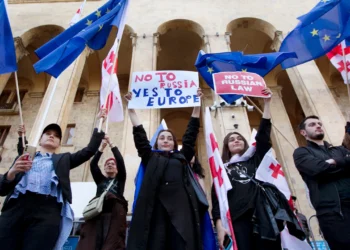Human Lives Human Rights: A similar case to the killing of native Canadian children by the Church is the killing of Iraqi children during Operation Anfal by the Ba’athist regime in Iraq in the early 1990s. The Iraqi government systematically targeted Iraqi children for genocide and ethnic cleansing.
The Universal Declaration of Human Rights
The actions of the church institution violate many principles of the Universal Declaration of Human Rights. The following is an overview of how this amounts to the killing of Canadian children.
(A) Violation of Article 3 of the Universal Declaration of Human Rights, which guarantees the right to life, liberty and security of person.
(B) Violation of Article 5 of the Universal Declaration of Human Rights, which states that no one shall be subjected to torture or to cruel, inhuman or degrading treatment or punishment.
(C) Violation of Article 6 of the Universal Declaration of Human Rights, which states that everyone has the right to recognition everywhere as a person before the law.
(D) Violation of Article 7 of the Universal Declaration of Human Rights, which states that all are equal before the law and are entitled without any discrimination to equal protection of the law.
The massacre of Canadian children was a genocide
According to Raphael Lemkin, genocide does not necessarily mean the immediate destruction of a nation, except when accomplished by mass killings of all members of a nation. It is intended rather to signify a coordinated plan of different actions aiming at the destruction of essential foundations of the life of national groups, with the aim of annihilating the groups themselves. The objectives of such a plan would be the disintegration of the political and social institutions, of culture, language, national feelings, religion, and the economic existence of national groups, and the destruction of the personal security, liberty, health, dignity, and even the lives of the individuals belonging to such groups.
Genocide is concerned with the life of a national group as a being and leads to actions that target individuals not in terms of individual competence but as members of a national group. The concept of genocide as an international crime was first introduced at the time of the drafting of the Nuremberg International Military Tribunal. However, instead of genocide, the statute uses the general description of a crime against humanity and does not mention this issue in the court ruling.
According to the Statute, crimes against humanity do not need to be linked to an armed conflict and can also occur in peacetime, similar to the crime of genocide. That same Article provides a definition of the crime that contains the following main elements:
Murder, extermination, enslavement, deportation, and other inhumane acts committed against any civilian population, before or during the war, or persecutions on political, racial or religious grounds in execution of or in connection with any crime within the jurisdiction of the Tribunal, whether or not in violation of the domestic law of the country where perpetrated.
Likewise, United Nations General Assembly Resolution 96, adopted on December 11, 1946, declared:
“Genocide is a denial of the right of existence of entire human groups, as homicide is the denial of the right to live of individual human beings; such denial of the right of existence shocks the conscience of mankind, results in great losses to humanity in the form of cultural and other contributions represented by these human groups, and is contrary to moral law and to the spirit and aims of the United Nations.”
The UN General Assembly, in Resolution 180 on 21 November 1947, declared that genocide is an international crime entailing national and international responsibility on the part of individuals and States.
These definitions are not comprehensive, because genocide is a new concept in which it is relatively difficult to predict all forms of aggression on the lives of human groups. However, the following is considered as the more appropriate one.
According to Article 2 of the 1948 United Nations Convention on the Prevention and Punishment of the Crime of Genocide defines genocide as “any of the following acts committed with intent to destroy, in whole or in part, a national, ethnical, racial or religious group, as such:
a. killing members of the group;
b. causing serious bodily or mental harm to members of the group;
c. deliberately inflicting on the group conditions of life, calculated to bring about its physical destruction in whole or in part;
d. imposing measures intended to prevent births within the group; [and]
e. forcibly transferring children of the group to another group.”
This article continues…..


















